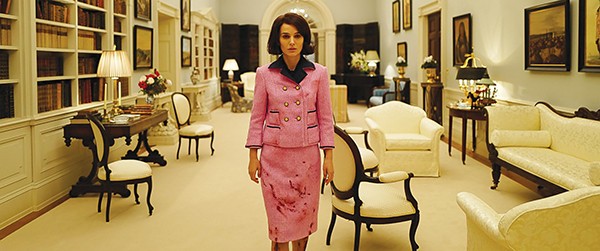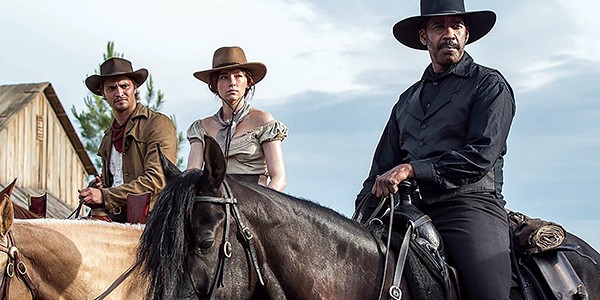When Jackie was being filmed in early 2016, few could have predicted how relevant it would be in 2017. The film, starring Natalie Portman as Jacqueline Kennedy and helmed by Chilean director Pablo Larraín, is meant to be a portrait of Mrs. Kennedy at the most trying time of her life, the days after her husband’s assassination and his funeral. But it’s also about the second-most traumatic transition of power in American history, and as the clock runs out on the Obama presidency, Jackie takes on another level of pathos.
The frame for the story is an interview Kennedy did with Theodore White, a famed foreign correspondent whose book, The Making of the President, 1960, cemented the narrative of John F. Kennedy’s insurgent win over Richard Nixon. The week after the asassination, White was summoned to the Kennedy’s Hyannis Port compound for an emotional interview with the suddenly widowed first lady. Over vodka and cigarettes — so many cigarettes — Kennedy poured her heart out to White. His story, which appeared in Life magazine, was the origin of the Camelot mythos that sprang up around the Kennedy presidency.
Jackie jumps around in time as the first lady’s recollections roll from one moment to the next. Director Larraín’s assignment is to recreate historical moments already familiar to many viewers, while presenting them in a fresh way for younger people unfamiliar with history. The recreation of the 1962 television tour of the White House, in which Portman is digitally inserted into some existing shots while others are recreated out of whole cloth, is an incredible example of using video texture to set mood. The phantom ride as the motorcade bearing the wounded president races to Parkland Hospital and the foggy sequence in which Jackie tours Arlington cemetery, looking for a place to stake out for John’s grave, feature some particularly inspired work by cinematographer Stéphane Fontaine.

Probably due to the presence of Darren Aronofsky as producer, Jackie is as tight a production as you’ll see these days. But it’s all in service to Portman’s layered performance as a woman buffeted by the slings and arrows of outrageous fortune. As first lady, Mrs. Kennedy saw it as her job to project an image of perfection for the women of America. As a child of Manhattan wealth and a Vassar girl, Jackie was well suited for the role. As Portman reveals, when her world crumbled around her, that quest for perfection turned into yet another unbearable burden. And yet, somehow, Jackie perservered. One of Portman’s best touches is the little bit of surprise that leaks through her mask of grief and rage each time she makes a tough decision, as if Jackie herself doesn’t know the source of her inner strength.
Ably supporting Portman is a nearly unrecognizable Greta Gerwig as Kennedy’s secretary Nancy Tuckerman. Peter Sarsgaard doesn’t look very much like Bobby Kennedy, but his onscreen presence is always welcome. Caspar Phillipson, on the other hand, makes a scarily accurate John F. Kennedy.
The most poignant moments in the film are reverse tracking shots of a shell-shocked Jackie gliding like a living ghost through the empty White House residence. Through Portman’s eyes, we gaze at the sudden end of an era of class, elegance, and hope, and the prospect of an uncertain, but inevitably darker future. This is the moment we find ourselves in now, only instead of an assassin’s bullet, it was a flurry of espionage and skullduggery that have dealt a disorienting blow to our national psyche. Portman’s wounded, flinty Jackie, dispensing orders with an eerie calm in public while frantically pounding down valium and vodka in private, resonates deeply in 2017. Let’s hope we can all match the cold steel in her voice when Jackie refuses to take off her blood-stained Chanel suit — “Let them see what they have done.”
